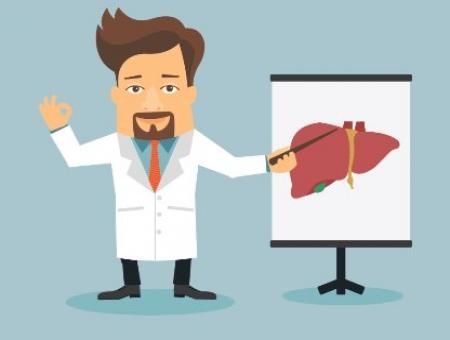
To Book an Appointment
Call Us+91 92688 80303The liver is one of the vital organs in the human body
By Prof (Dr.) Subhash Gupta in Liver Transplant and Biliary Sciences
May 04 , 2022 | 2 min read
Your Clap has been added.
Thanks for your consideration
Share
Share Link has been copied to the clipboard.
Here is the link https://www.maxhealthcare.in/blogs/liver-is-one-of-vital-organs-in-human-body
The liver is one of the vital organs in the human body. Unlike other organs in the body, the liver has a huge reserve, and physical signs and symptoms of liver disease arise only when most of the liver gets damaged.
The common symptoms of liver disease are jaundice (yellow colour of eyes), loss of appetite/aversion to food, feeling of weakness and lethargy, abnormal bleeding occurring after minor trauma. Ascites, GI bleeding and encephalopathy are symptoms of advanced liver disease.
Although there are multiple causes of liver disease, the common causes are viral hepatitis (hepatitis A, B, C, D, E), chronic alcohol consumption, diabetes, obesity, congenital liver diseases, and many more.
To detect the exact cause of liver disease and the damage that the disease has caused to the liver, multiple blood tests and radiological tests are done; common among these are liver function tests, tests for hepatitis virus, blood coagulation tests, ultrasound and CT scan of the liver.
It is a well known saying that “prevention is better than cure”, so the question arises as to what steps can be taken to prevent liver disease from happening? Some of these are a) vaccination against hepatitis virus (vaccines are available for hepatitis A and B), b) avoiding excessive consumption of alcohol, and C)leading a healthy lifestyle and preventing obesity.
A large majority of liver problems can be managed with medicines and lifestyle modifications, but this is only when the illness is detected early. Once the disease is advanced and has caused irreversible damage to the liver, the only option that remains is that of liver transplantation.
Check out 5 precautions to take after a successful liver transplant surgery
Liver transplantation has now become a well-accepted modality for the management of the end-stage liver disease. Liver transplantation involves removing the diseased liver from the patient and replacing it with a healthy liver either from a brain dead person or, more commonly, with partial liver from a healthy donor.
Owing to the huge functional reserve of a healthy person that we initially talked about, the part of the liver remaining with the donor is sufficient to maintain normal functioning, and the remaining liver grows back to its normal size soon after donation.
Liver transplantation has been a major advance in the management of liver diseases. However, the procedure is constrained by the lack of awareness in people about this treatment and also by the lack of availability of cadaveric organs.
Ongoing research might yield better medicines for the treatment of hepatitis in the future, and also advances in medical research might provide alternatives to liver transplantation, such as medication for reversal of fibrosis, xenotransplantation, and stem cell therapy.
Related Videos

Written and Verified by:
Related Blogs

Prof (Dr.) Subhash Gupta In Liver Transplant and Biliary Sciences
Nov 08 , 2020 | 2 min read

Dr. Nivedita Pandey In Gastroenterology, Hepatology & Endoscopy , Liver Transplant and Biliary Sciences
Nov 08 , 2020 | 2 min read

Dr. Nivedita Pandey In Gastroenterology, Hepatology & Endoscopy , Liver Transplant and Biliary Sciences
Nov 08 , 2020 | 2 min read
Blogs by Doctor

5 precautions to take after a successful liver transplant surgery
Prof (Dr.) Subhash Gupta In Liver Transplant and Biliary Sciences
Nov 08 , 2020 | 2 min read

What are the common symptoms of a liver disease?
Prof (Dr.) Subhash Gupta In Liver Transplant and Biliary Sciences
Nov 08 , 2020 | 2 min read

Five main strains of the Hepatitis virus – A, B, C, D and E
Prof (Dr.) Subhash Gupta In Liver Transplant and Biliary Sciences
Nov 28 , 2020 | 2 min read
Most read Blogs
Get a Call Back
Related Blogs

Prof (Dr.) Subhash Gupta In Liver Transplant and Biliary Sciences
Nov 08 , 2020 | 2 min read

Dr. Nivedita Pandey In Gastroenterology, Hepatology & Endoscopy , Liver Transplant and Biliary Sciences
Nov 08 , 2020 | 2 min read

Dr. Nivedita Pandey In Gastroenterology, Hepatology & Endoscopy , Liver Transplant and Biliary Sciences
Nov 08 , 2020 | 2 min read
Blogs by Doctor

5 precautions to take after a successful liver transplant surgery
Prof (Dr.) Subhash Gupta In Liver Transplant and Biliary Sciences
Nov 08 , 2020 | 2 min read

What are the common symptoms of a liver disease?
Prof (Dr.) Subhash Gupta In Liver Transplant and Biliary Sciences
Nov 08 , 2020 | 2 min read

Five main strains of the Hepatitis virus – A, B, C, D and E
Prof (Dr.) Subhash Gupta In Liver Transplant and Biliary Sciences
Nov 28 , 2020 | 2 min read
Most read Blogs
Specialist in Location
- Best Liver Transplant Surgeons in Patparganj
- Best Liver Transplant Surgeons in India
- Best Liver Transplant Surgeons in Delhi
- Best Liver Transplant Surgeons in Ghaziabad
- Best Liver Transplant Surgeons in Gurgaon
- Best Liver Transplant Surgeons in Saket
- Best Liver Transplant Surgeon in Nagpur
- Best Liver Transplant Surgeon in Lucknow
- Best Liver Transplant Surgeons in Dwarka
- Best Liver Transplant Surgeon in Pusa Road
- Best Liver Transplant Surgeon in Vile Parle, Mumbai
- Best Liver Transplant Surgeons in Sector 128, Noida
- CAR T-Cell Therapy
- Chemotherapy
- LVAD
- Robotic Heart Surgery
- Kidney Transplant
- The Da Vinci Xi Robotic System
- Lung Transplant
- Bone Marrow Transplant (BMT)
- HIPEC
- Valvular Heart Surgery
- Coronary Artery Bypass Grafting (CABG)
- Knee Replacement Surgery
- ECMO
- Bariatric Surgery
- Biopsies / FNAC And Catheter Drainages
- Cochlear Implant
- More...





